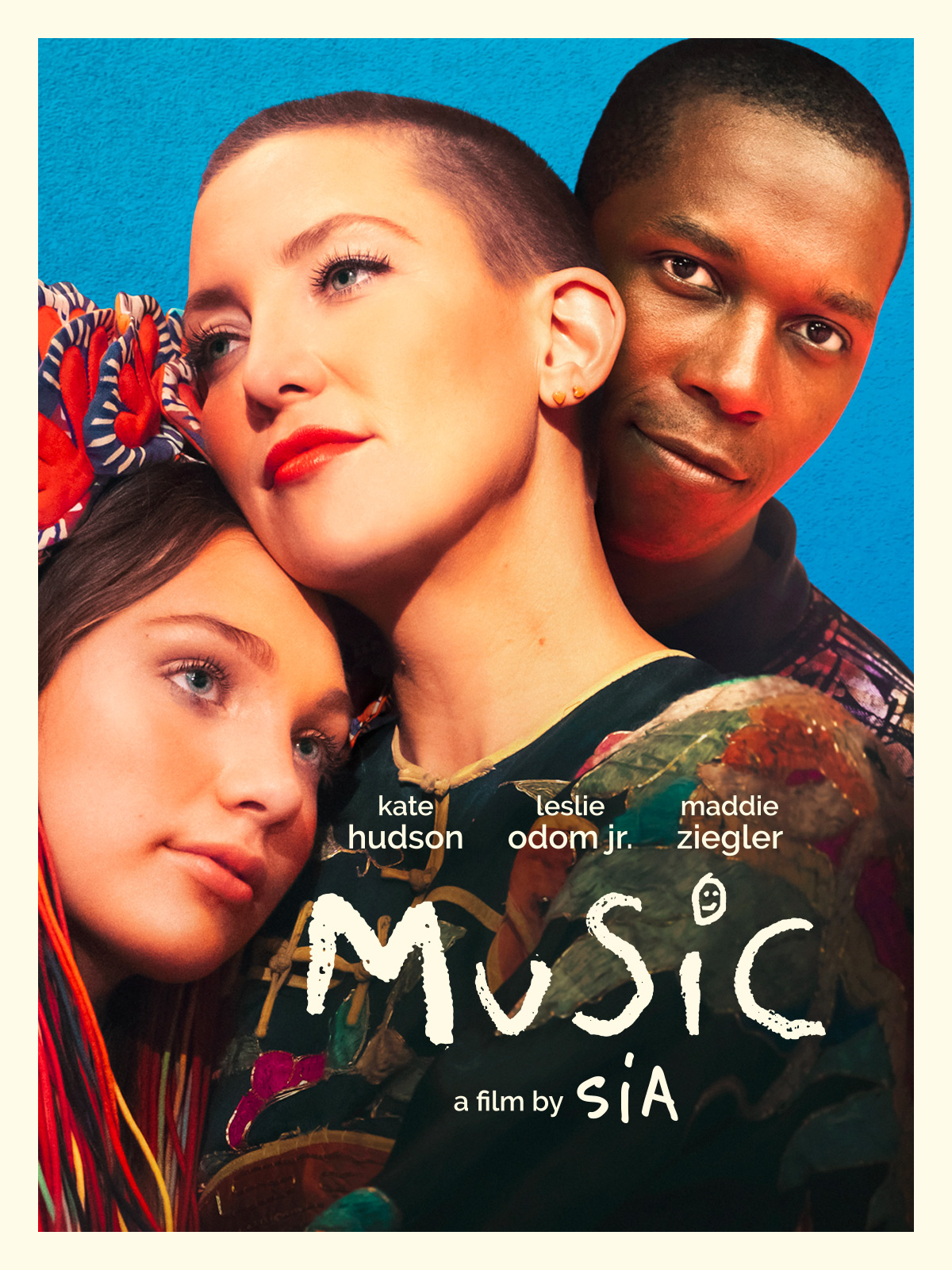A closer examination of the movie “Music,” the controversial directorial debut of singer Sia. Photo from firstshowing.com.
“Music,” the directorial debut of singer-turned-filmmaker Sia, has received backlash for its offensive and insensitive portrayal of a character on the autism spectrum.
The film follows a newly-sober drug dealer Zu, played by Kate Hudson, as she becomes the guardian of her younger half-sister Music, who is autistic and nonverbal.
The title character is played by non-autistic dancer-actress Maddie Ziegler, which caused an uproar from the autistic community. Many are calling for greater representation for autistic people in film and more work for autistic actors.
When discussing her choice not to hire an autistic actress for the role, Sia said she had previously worked with an autistic actress, but did not hire her after finding the experience working with her to be “unpleasant and stressful.”
Adding fuel to the fire, Sia fired back at the film’s detractors on Twitter. In one particular encounter with an autistic actor calling out her lack of effort in including autistic voices, Sia responded, “Maybe you’re just a bad actor.”
Sia’s defensive response to the film has been viewed as tone-deaf, and Sia herself has been accused of having a savior complex, only exacerbated by the consultant work and support from Autism Speaks during the production of the film. Other autism advocacy groups spoke out against this decision prior to the film’s release, noting that Autism Speaks does not have autistic leadership and has motivations that are in opposition to the autistic community, and have even been labeled as an autism hate-group.
The controversy only grew as details of the film were revealed upon its theatrical release in Australia last month.
Many scenes in the film feature bright flashing colors and strobe lights that can trigger sensory overload and photosensitive epilepsy. Additionally, the movie’s portrayal of physical restraint has been labeled as dangerous, and even deadly, to members of the autistic community.
When it came to Ziegler’s performance, critics were not impressed by her facial expressions and over-exaggerated mannerisms. Many people considered the performance to be more of an offensive caricature of a neurodivergent person than a fully-developed character.
Despite the hoards of negative backlash, “Music” was recently nominated for two Golden Globe awards.
Considering the history of films featuring neurodivergent characters played by neurotypical actors, this, unfortunately, is not much of a surprise. Dustin Hoffman and Tom Hanks both received Academy Awards for doing so in “Rain Man” and “Forrest Gump” respectively.
“Music” shares the most similarities, however, to the 2005 film “Riding the Bus with My Sister,” featuring Rosie O’Donnell, whose performance of a woman with a developmental disability was critically panned and viewed as offensive across the board.
The release of “Music,” as well as critical reevaluations of the aforementioned films, has raised the question: is it possible to produce a film about intellectual disabilities without proper representation?
While “Music” presents a very compelling case that it is not possible, it also presents an interesting case study as to what steps should be taken to ensure the autistic community is properly represented.
Film companies need to consult with multiple autism advocacy organizations, particularly groups that do not view autism as an “epidemic.” Filmmakers should also be careful to avoid any potential visual triggers like strobe lights and loud music.
Finally, it is imperative that filmmakers work with the autistic community to construct a narrative around autism that is accurate, respectful and compelling. This is the only way to ensure that autistic characters are not built around the offensive stereotypes that have been plaguing the community members both on-and-off screen.




